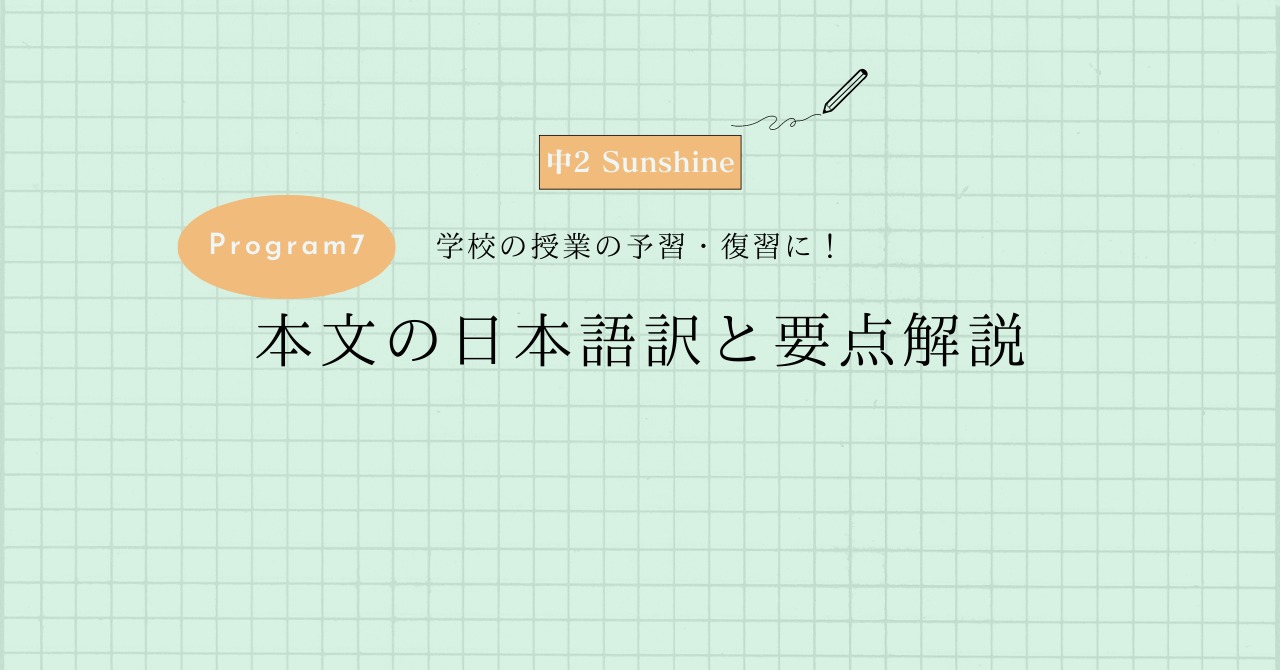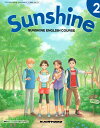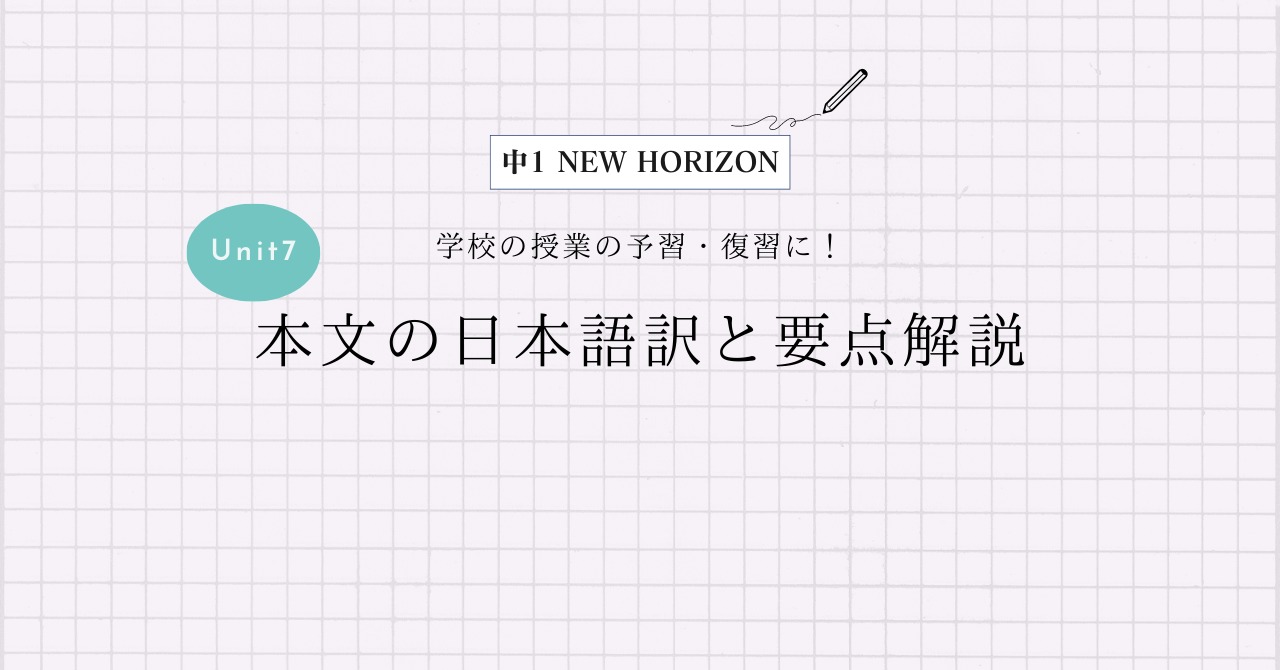開隆堂 中学2年生 Sunshine(サンシャイン) Program7 Part3の本文の日本語訳と重要箇所の解説です。
Program7-Scenes, 7-1, 7-2の解説はこちらからご覧ください。
>中2Sunshine Program7 Scenes 本文和訳
>中2Sunshine Program7 Part1 本文和訳
>中2Sunshine Program7 Part2 本文和訳
- Program7 Part3 本文と日本語訳
- Program7 Part3 重要事項の解説
- Manga and anime are parts of Japanese pop culture.
- Today they attract and influence many people around the world.
- I’ve read a book about art history before.
- There was a similar situation about 150 years ago.
- In those days, ukiyo-e was pop culture like manga.
- Have you ever heard of Monet and van Gogh?
- They were greatly influenced by ukiyo-e.
- Japanese pop culture is getting more popular day by day.
- It is a gateway between Japan and other countries.
- Program7 Part3 まとめ
Program7 Part3 本文と日本語訳
Manga and anime are parts of Japanese pop culture.
「漫画とアニメは日本の大衆文化の一部です。」
Today they attract and influence many people around the world.
「今日では,それらは世界中の多くの人を惹きつけ,多くの人に影響を与えています。」
I’ve read a book about art history before.
「私は以前,芸術の歴史についての本を読んだことがあります。」
There was a similar situation about 150 years ago.
「約150年前に似た状況がありました。」
In those days, ukiyo-e was pop culture like manga.
「当時,浮世絵は漫画のような大衆文化でした。」
It became very popular in Europe.
「浮世絵はヨーロッパでとても人気になりました。」
Have you ever heard of Monet and van Gogh?
「今までにモネとファン・ゴッホを聞いたことがありますか?」
They were greatly influenced by ukiyo-e.
「彼らは浮世絵に強く影響されました。」
Japanese pop culture is getting more popular day by day.
「日本の大衆文化は日に日により人気になってきています。」
It is a gateway between Japan and other countries.
「それは日本と他の国の間の入り口です。」

Program7 Part3 重要事項の解説
Manga and anime are parts of Japanese pop culture.
“part of~”は「~の一部」という表現になります。
“pop”は「大衆の」という形容詞,“culture”は「文化」という名詞ですね。
Today they attract and influence many people around the world.
“they”は“Manga and anime”を指しています。
“attract”は「を惹きつける,魅了する」,“influence”は「に影響を与える」という動詞になります。
“around the world”は「世界中」という表現ですね。
I’ve read a book about art history before.
この文では「現在完了の経験用法」が使われていますね。
“art”は「芸術」,“history”は「歴史」という名詞になります。
There was a similar situation about 150 years ago.
この文では「there構文」が使われていますね。
“similar”は「似た,同様な」という形容詞で,“situation”は「状況」という名詞になります。
In those days, ukiyo-e was pop culture like manga.
“in those days”は「当時」という重要表現ですね。
“like”は「~のような」という前置詞になります。
Have you ever heard of Monet and van Gogh?
この文では「現在完了の経験用法」が使われていますね。
“ever”は「今までに」という副詞で,“hear of~”は「~について聞く」という表現になります。
They were greatly influenced by ukiyo-e.
この文では「受動態」が使われていますね。
“They”は“Monet and van Gogh”を指しています。
“greatly”は「大いに」といった意味で,今回は「強く」と訳しました。
Japanese pop culture is getting more popular day by day.
この文では「現在進行形」が使われていますね。
“get 形容詞”で「~になる」という意味で,“popular”は「人気の」という形容詞です。
また,ここでは「比較級」として使われていますね。
“day by day”は「日に日に」という副詞になります。
It is a gateway between Japan and other countries.
“It”は“Japanese pop culture”を指しています。
“gateway”は「入口,玄関」といった名詞です。
“between A and B”は「AとBの間」という重要表現になります。必ず覚えておきましょう!
Program7 Part3 まとめ
以上がProgram7 Part3の日本語訳となります。
「現在完了の経験用法」を確実にマスターしましょう!
>中2Sunshine Program7 Scenes 本文和訳
>中2Sunshine Program7 Part1 本文和訳
>中2Sunshine Program7 Part2 本文和訳
何か分からない点や他に解説してほしい点があれば,お気軽にコメントしてください!




コメント